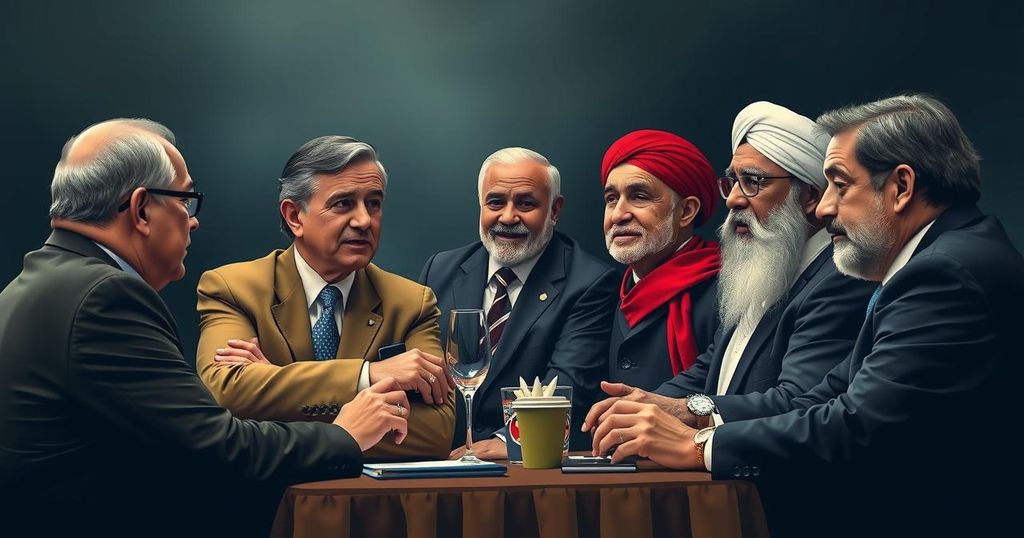At the G20 summit in Rio, leaders focused on addressing humanitarian issues exacerbated by conflicts in Gaza and Ukraine, alongside urgent calls for climate action and poverty alleviation. The discussions unfolded against the backdrop of Donald Trump’s expected return to power, emphasizing the need for multilateral cooperation in the realm of global policy. Brazilian President Lula da Silva initiated an alliance against hunger and poverty, amplifying the summit’s focus on these critical concerns.
Leaders from the G20 major economies convened in Rio de Janeiro, issuing a joint statement that underscored the grave humanitarian issues stemming from ongoing conflicts in Gaza and Ukraine. The summit aimed to foster collaboration on pressing issues such as climate change, poverty alleviation, and tax reforms. Discussions revealed a shared understanding of urgent civilian aid requirements and the need for multilateral unity, particularly in light of former President Donald Trump’s impending return to power in January. The agenda not only reflected the necessity for improved international relations but also highlighted Brazil’s commitment to addressing extreme poverty and hunger on a global scale. Brazilian President Luiz Inacio Lula da Silva emphasized the importance of political action in tackling these issues, stating that hunger is a byproduct of political decisions rather than scarcity. Despite significant negotiations, a narrower consensus emerged regarding trade, climate policies, and security challenges against the backdrop of anticipated U.S. policy shifts. The leaders expressed a mutual concern regarding the catastrophic humanitarian crisis in Gaza and the ongoing violence in Ukraine, advocating for comprehensive ceasefire agreements and additional support for civilians. Meanwhile, the summit highlighted the urgency of establishing a new financial goal for climate funding by the end of the upcoming COP29 summit in Azerbaijan. In addressing global structures and the ascent of developing economies, leaders acknowledged the growing demand for their voices to be heard in international decision-making processes. Chinese President Xi Jinping announced initiatives to support developing nations, contrasting with U.S. President Joe Biden’s perceived diminished influence as he approaches the end of his term. With Trump’s potential policy reversals on the horizon, G20 leaders remain focused on fostering cooperation to confront shared global challenges effectively.
The G20 summit serves as a platform for the world’s major economies to address pressing global issues, ranging from trade and security to development and climate change. As the geopolitical landscape shifts with the return of Donald Trump, concerns arise regarding the potential rollback of international collaborations fostered under the previous U.S. administration. This summit in Brazil particularly emphasized issues such as extreme poverty, climate action, and humanitarian crises, reflecting the need for a unified approach across nations amidst changing political dynamics.
In conclusion, the G20 summit in Rio highlighted the urgent need for international cooperation to tackle humanitarian crises and environmental challenges. As global leaders navigate a shifting political landscape with the anticipated return of Donald Trump, the focus remains on combating poverty, addressing climate change, and fostering multilateral unity. The summit concluded with a commitment to support developing countries and a resolve to seek effective solutions within the framework of international cooperation going forward.
Original Source: www.france24.com






